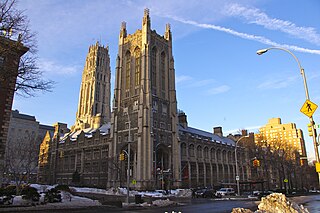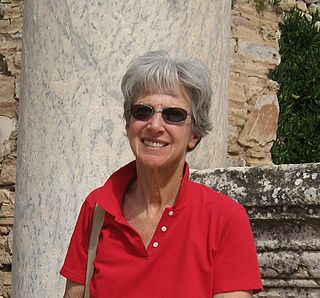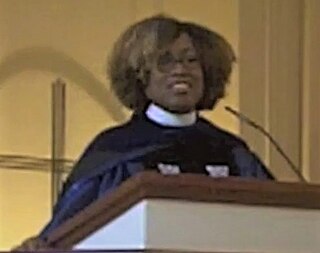Related Research Articles

Womanism is a term originating from the work of African American author Alice Walker in her 1983 book In Search of Our Mothers' Gardens, denoting a movement within feminism, primarily championed by Black feminists. Walker coined the term "womanist" in the short story Coming Apart in 1979. Her initial use of the term evolved to envelop a spectrum of issues and perspectives facing black women and others.
Womanist theology is a methodological approach to theology which centers the experience and perspectives of Black women, particularly African-American women. The first generation of womanist theologians and ethicists began writing in the mid to late 1980s, and the field has since expanded significantly. The term has its roots in Alice Walker's writings on womanism. "Womanist theology" was first used in an article in 1987 by Delores S. Williams. Within Christian theological discourse, Womanist theology emerged as a corrective to early feminist theology written by white feminists that did not address the impact of race on women's lives, or take into account the realities faced by Black women within the United States. Similarly, womanist theologians highlighted the ways in which Black theology, written predominantly by male theologians, failed to consider the perspectives and insights of Black women. Scholars who espouse womanist theology are not monolithic nor do they adopt each aspect of Walker's definition. Rather, these scholars often find kinship in their anti-sexist, antiracist and anti-classist commitments to feminist and liberation theologies.
Women as theological figures have played a significant role in the development of various religions and religious hierarchies.

Cain Hope Felder was an American biblical scholar, serving as professor of New Testament language and literature and editor of The Journal of Religious Thought at the Howard University School of Divinity. He also served as chair of the Doctor of Philosophy program and immediate past chair of the Doctor of Ministry program. He had been on Howard's faculty from 1981 until his retirement in 2016.

Katie Geneva Cannon was an American Christian theologian and ethicist associated with womanist theology and black theology. In 1974 she became the first African-American woman ordained in the United Presbyterian Church (USA).
Stacey M. Floyd-Thomas is an American author and educator. She is associate professor of ethics and society at Vanderbilt Divinity School and the Graduate Department of Religion at Vanderbilt University in Nashville, Tennessee. Floyd-Thomas is a Womanist Christian social ethicist whose research interests include Womanist thought, Black Church Studies, liberation theology and ethics, critical race theory, critical pedagogy and postcolonial studies.
Jane Dewar Schaberg was an American biblical scholar who served as Professor of Religious Studies and of Women's Studies at the University of Detroit Mercy from 1977 through 2009.

Monica A. Coleman is a contemporary theologian associated with process theology and womanist theology. She is currently Professor of Africana Studies and the John and Patricia Cochran Scholar for Inclusive Excellence at the University of Delaware, as well as the Faculty Co-Director Emerita for the Center for Process Studies. Her research interests include Whiteheadian metaphysics, constructive theology, philosophical theology, metaphorical theology, black and womanist theologies, African American religions, African traditional religions, theology and sexual and domestic violence, and mental health and theology. Coleman is an ordained elder in the African Methodist Episcopal Church.

Jacquelyn Grant is an American theologian, a Methodist minister. Alongside Katie Cannon, Delores S. Williams, and Kelly Brown Douglas, Grant is considered one of the four founders of womanist theology. Womanist theology addresses theology from the viewpoint of Black women, reflecting on both their perspectives and experience in regards to faith and moral standards. Grant is currently the Callaway Professor of Systematic Theology at the Interdenominational Theological Center in Atlanta.

Carol Lyons Meyers is an American feminist biblical scholar. She is the Mary Grace Wilson Professor Emerita of Religious Studies at Duke University. Meyers' field of research is focused on biblical studies, archaeology in the Middle East, and the study of women in the biblical world.

Delores Seneva Williams was an American Presbyterian theologian and professor notable for her formative role in the development of womanist theology and best known for her book Sisters in the Wilderness: The Challenge of Womanist God-Talk. Her writings use black women's experiences as epistemological sources, and she is known for her womanist critique of atonement theories. As opposed to feminist theology, predominantly practiced by white women, and black theology, predominantly practiced by black men, Williams argued that black women's experiences generate critical theological insights and questions.
Gale A. Yee is an American scholar of the Hebrew Bible. Her primary emphases are postcolonial criticism, ideological criticism, and cultural criticism. She applies feminist frameworks to biblical texts. An American of Chinese descent, she has written frequently on biblical interpretation from an Asian American perspective. She is the first woman of color to be President of the Society of Biblical Literature.
Elsa Támez is a Mexican liberation theologian and biblical scholar. Her writings on feminist theology and contextual biblical criticisms brought new perspectives to these fields of study, laying the foundation for later scholars. Her books include Bible of the Oppressed, The Amnesty of Grace, and Struggles for Power in Early Christianity: A Study of the First Letter of Timothy (2007). She is Professor Emerita at the Universidad Biblica Latinamericana in Costa Rica. She was appointed president of Universidad Biblica Latinamericana in 1995, becoming their first woman president.
Mitzi J. Smith is an American biblical scholar who is J. Davison Philips Professor of New Testament at Columbia Theological Seminary. She is the first African-American woman to earn a PhD in New Testament from Harvard. She has written extensively in the field of womanist biblical hermeneutics, particularly on the intersection between race, gender, class, and biblical studies. She considers her work a form of social justice activism that brings attention to unequal treatment of marginalized groups.
Nyasha Junior is an American biblical scholar. Her research focuses on the connections between religion, race, and gender within the Hebrew Bible. She holds a PhD from Princeton Theological Seminary. She was associate professor at Temple University before moving to the University of Toronto in the department for the Study of Religion. She was a visiting associate professor and research associate at Harvard Divinity School for the 2020–21 academic year.
Cheryl A. Kirk-Duggan is an African-American womanist theologian, professor, author, poet, and an elder in the Christian Methodist Episcopal Church. She is Professor-Emerita of Religion and Women's Studies and Director of Women's Studies at Shaw University Divinity School. She is the author or editor of numerous books, including the volume Women and Christianity in a series on Women and Religion in the World, published by Praeger.

Wilda C. Gafney, also known as Wil Gafney, is an American biblical scholar and Episcopal priest who is the Right Rev. Sam B. Hulsey Professor of Hebrew Bible at Brite Divinity School of Texas Christian University in Fort Worth, Texas. She is specialist in womanist biblical interpretation, and topics including gender and race.
Sarojini Nadar is a South African theologian and biblical scholar who is the Desmond Tutu Research Chair in Religion and Social Justice at the University of the Western Cape.
African American biblical hermeneutics or African American biblical interpretation is the study of the interpretation of the Christian Bible, informed by African American history and experiences.
Debra Mubashshir Majeed was an American religious historian, activist and womanist.
References
- ↑ "Dr. Renita Weems to Give 2020 O'Connor Lectures". Columbia Theological Seminary. 2020-01-14. Retrieved 2020-12-18.
- 1 2 "Dr. Renita J. Weems - SheSource Expert - Women's Media Center". www.womensmediacenter.com. Retrieved 2018-01-01.
- ↑ "Dr. Renita Weems to Give 2020 O'Connor Lectures". Columbia Theological Seminary. 2020-01-14. Retrieved 2020-12-18.
- ↑ Howard, Cam. "Wilbur Awards | Religion Communicators Council". www.religioncommunicators.org. Retrieved 2018-01-01.
- ↑ "Yale University Divinity School Library: Lyman Beecher Lecture Series". www.library.yale.edu. Retrieved 2018-01-01.